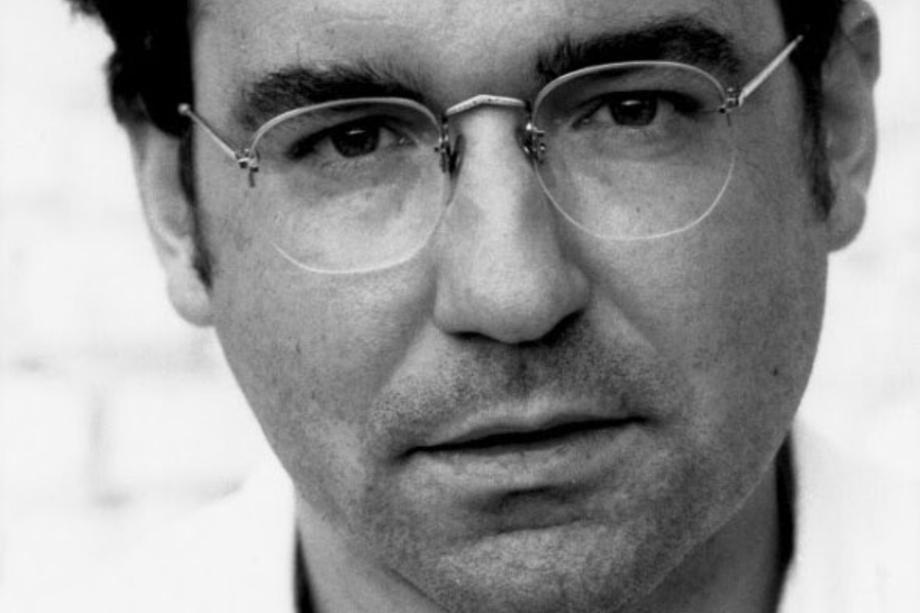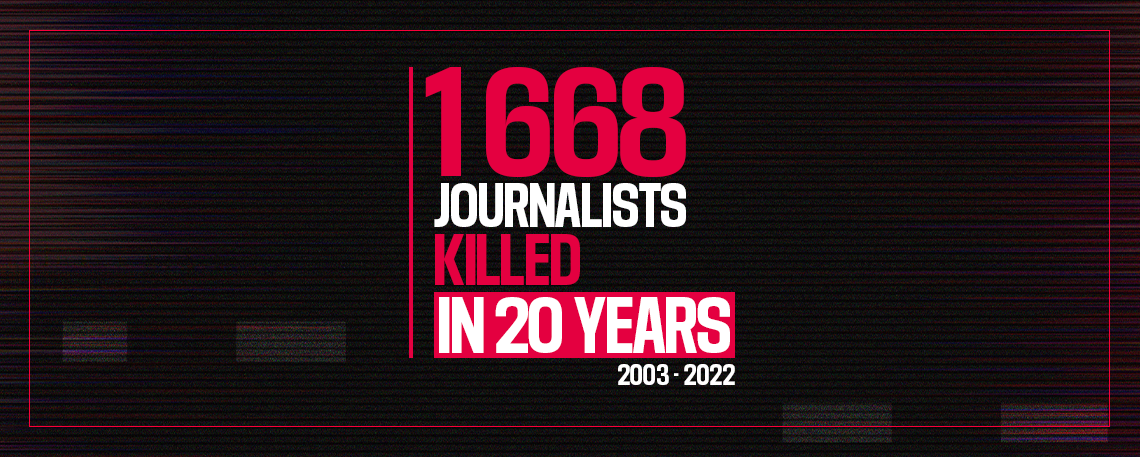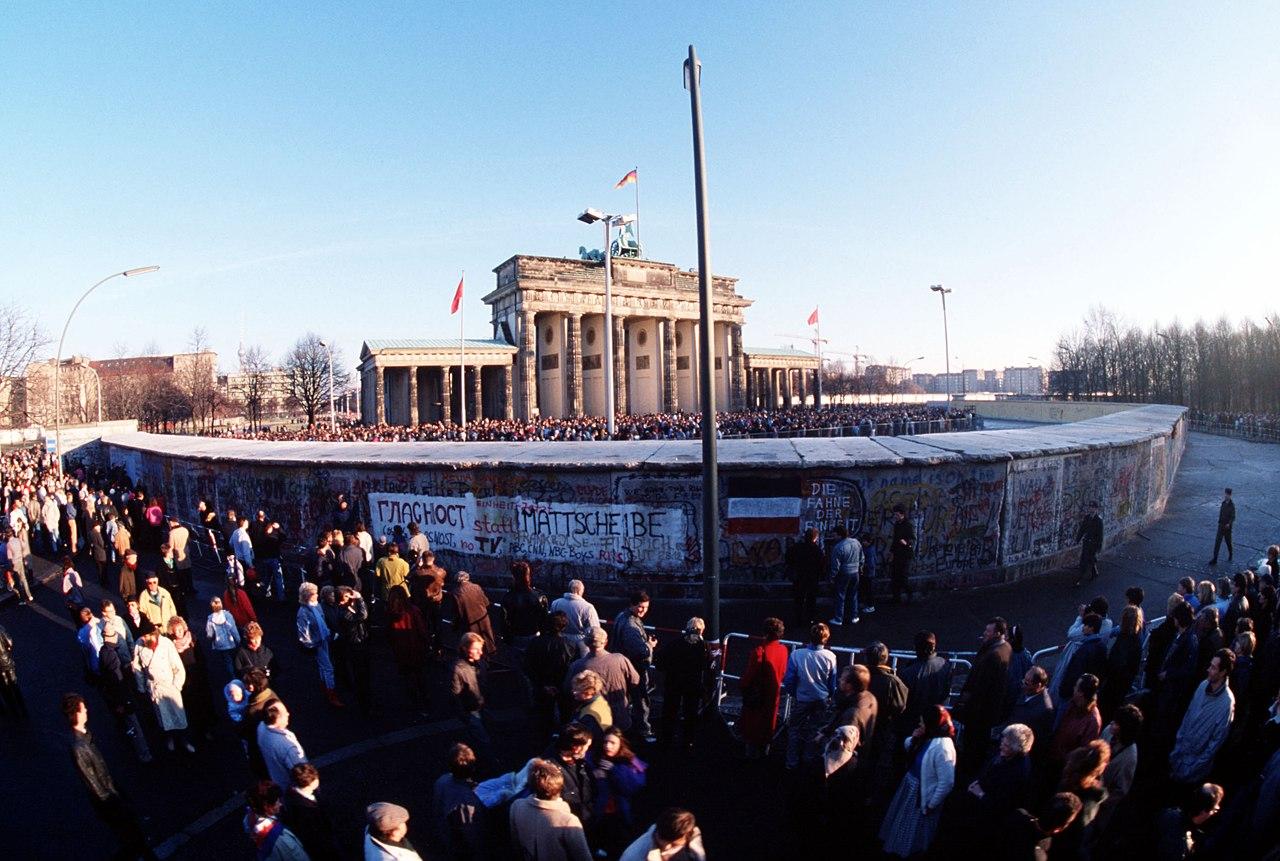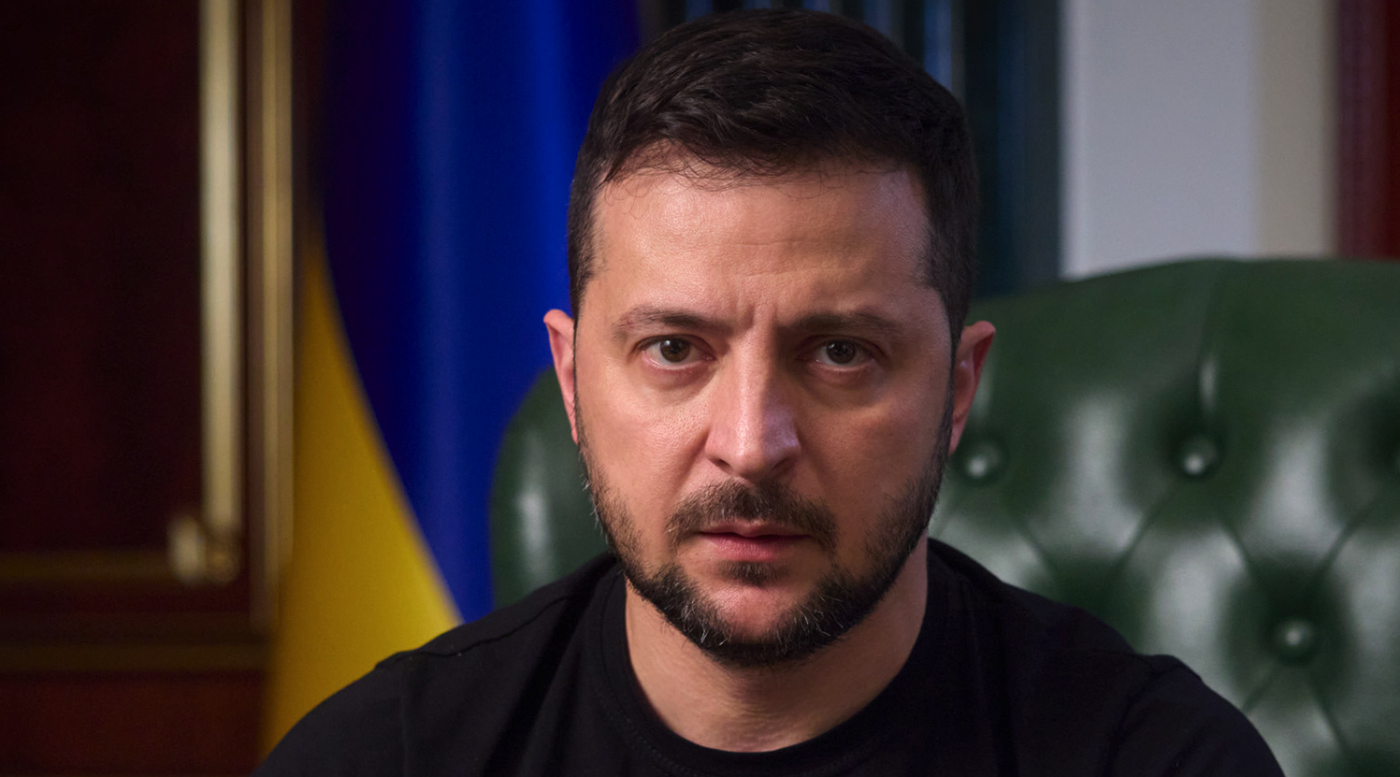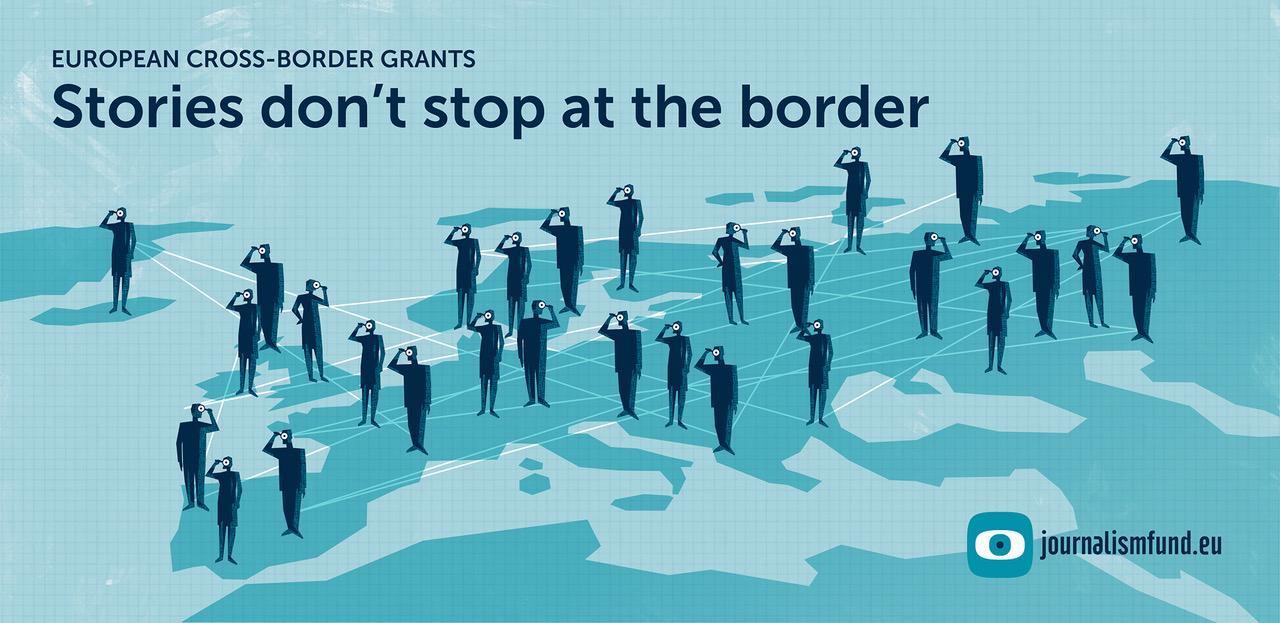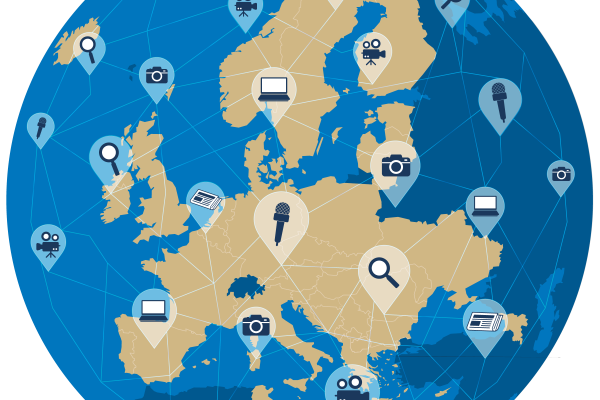Only benefits
As Journalismfund.eu enters its 25th anniversary in the industry, is there any reason to celebrate? It was in 1998 when friends, relatives and colleagues of the late Pascal Decroos came up with the idea to honour him by starting a fund in journalism. Love conquers all and the spirit of documentary filmmaker Pascal Decroos continues to this day.
Even then, it was the founders' conviction that the free market does not necessarily guarantee in-depth investigative journalism. On that same year, this particular form of journalism hardly existed in Belgium and no change was in the horizon. So, only benefits.
The Fund started in 1999 with a subsidy from the Flemish government. (At the time, it was only 184,000 euros, an equivalent to the Flemish government’s budget for advertisements in the Flemish press.) Not knowing exactly how to move forward, the founders took their cue from the Dutch Fund for In-depth Journalism and the American Fund for Investigative Journalism.
Meanwhile, the Fund is entering its 25th year. Nobody has ever imagined that this fund would last this long. In 2008, the board of the organisation decided to expand its reach: from supporting Flemish special journalism to supporting cross-border investigative journalism throughout the European continent. Consequently, most problems are international, power has shifted to international institutions, but journalism - and certainly investigative journalism - remained stuck in the backyard, so does speak. Journalismfund.eu went European.
In 2022 alone, the fund received 384 applications from 885 journalists and media outlets from 84 countries. Journalismfund.eu was able to support 203 projects this year, accounting for some €2.6 million in grant money. This benefited 490 beneficiaries: 413 journalists (211 women and 202 men) and 77 media companies. In comparison to the two previous years, this is a big step forward.
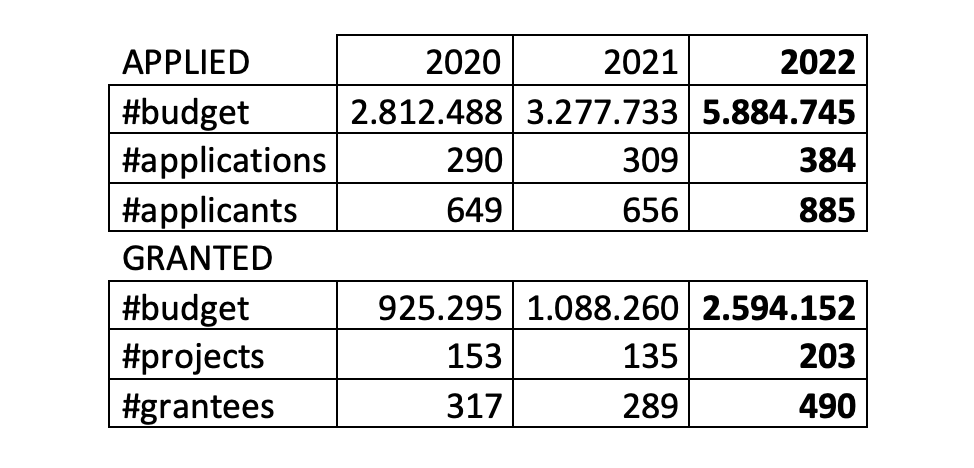
By 2021, the number of projects supported increased by 50%, the number of beneficiaries by 70% and financial support by 138%. This increase is, of course, primarily due to growing donor support. More and more philanthropic organisations and governments are becoming convinced of the need to support journalism and of Journalismfund.eu's modus operandi. Indeed, it is too risky to donate to journalists directly; it may cause journalists to lose their independence. Financial support may even weaken rather than strengthen journalists’ credibility. However, this is not the case with a hard and impenetrable partition, a neutral independent intermediary between the journalist and the donor. Journalismfund.eu occupies that unique position in Europe.
The biggest credit comes from the journalists themselves
There are quite a few hurdles to overcome to apply for and receive a grant for investigative journalism: the language, finding colleagues in other countries, a good topic on which some preliminary research may already have been done, the application process, a commitment from a media company, the risks, ... In this respect, the Journalismfund.eu team helps as much as it can and plays an important role by making all this possible behind the scenes. The professionalism of the jurors and mentors and the commitment of the Journalismfund.eu board also lay a foundation for the success. But in any case, the most important factor of this growth can be attributed to the persistent journalists who dare to conduct this kind of cross-border research. Their participations make the difference.
In short, there are still several obstacles to tackle in investigative journalism, which is elementary for a democratic system. A functioning democracy requires its citizens to be properly informed so that they can form an informed opinion. Quality journalism provides information, acts as a watchdog and questions power structures. The better this 'fourth force' functions, the stronger democracy will be.
To this end, it is essential that there are various quality journalistic channels and platforms to provide that important information. If citizens do not recognise themselves in what is being presented as news and in who is speaking, a gap grows between the information presented and the citizen to be informed. As a result, distrust and populism increase while the quality and democratic content of debate in society diminish.
Therefore, it is also important that citizens have access to high-quality journalism on every domain that shapes society (political, economic, scientific, cultural, social, etc.) and on every level where the influence of those domains is located: local, regional, national and international.
This kind of high-risk journalism does not always run smoothly. Sometimes resources prove insufficient, teams of journalists encounter bad luck or even develop contention among themselves. Frustration often arises because of the lack of sharing of information among government entities, company and individuals. Oftentimes, journalists risk legal trouble, harassed and called names such as rotten fish on social media. Lately, companies use detective agencies to shadow journalists and some governments illegally install bugging software into the mobile phones of troublesome journalists. In Greece, the debate is still raging.
Some have even paid for it with their own lives. In the past 20 years, 1,668 journalists have been killed, an average of 80 per year. Even though members of the Council of Europe agreed to protect journalism and the safety of journalists in April 2016 with the recommendations by several journalist organisations, nothing has happened with it until today.
Nobel Peace Prize winner Maria Ressa said it properly during her speech in Oslo: “Democracy has become a woman-to-woman, man-to-man defence of our values. We’re at a sliding door moment, where we can continue down the path we’re on and descend further into fascism, or we can each choose to fight for a better world. To do that, you have to ask yourself: what are YOU willing to sacrifice for the truth?“
We consider it a great honour that Journalismfund.eu is trusted by so many applicants (885 in 2022). Risk management is also essential in the organisation. The anonymity of the journalists until publication (and sometimes until after publication) and the non-disclosure of the topics are motivated by security purposes. The way the organisation screens all journalists, the anonymity of the jury members, the secure application platform, the process of awarding grants, the drafting and discussion of contracts and budgets, the four-eye principle for payments, the ethical funding policy, the conflict of interest policy, mentorship, follow-ups, and communication, among others are all set up to minimise the risks, first and foremost, for the journalists and to maximise the quality and impact of the investigations.
The revenue model
News media have had the same two revenue sources for decades: readers and advertisers. The digital transformation has severely eroded that revenue model. Readership revenues are declining as fewer people pay for news, which is often available for free online. Much of the revenue in the digital advertising market goes to international and business savvy platforms (Facebook and Google), whose massive collection of user data allow them to advertise in a very targeted and efficient way.
News media, big and small worldwide, is therefore currently looking for new revenue models. The egg of Columbus has not yet been found. Some are aiming for economies of scale and diversification; others go for a specific niche. Many are experimenting with new formulas to engage and charge readers, some are trying to recover ad revenue by collecting as much user data as possible themselves and trading it on the market.
It's a fallacy that the revenue model is at the root of the lack of thorough investigative journalism. In many European countries, the phenomenon of investigative journalism as we have known it for quite some time in Anglo-Saxon countries has actually not existed for very long: with its fact-based and structural approach, special sources, data analysis, FOI procedures, online research, forensic tools, OSINT, GIS, digital archives, ... Journalism that focuses more on visualisations and storytelling, communication strategy, ethical considerations, and thorough quality controls has not been around long enough to understand the revenue problem.
Investigative journalism has become more and more established through the publications of the International Consortium of Investigative Journalists (ICIJ). The publication of important documents such as Offshore Leaks, Panama Papers, Paradise Papers, Pandora Papers and FinCEN Files placed ICIJ’s credibility up front. ICIJ caused quite a stir worldwide and inspired many journalists around the world. Credit to the Global Investigative Journalism Network (GIJN) and several of its members who provided knowledge sharing on investigative journalism in their conferences.
Historical context
In Europe, we can actually hardly speak of a decline in investigative journalism over the past 10 years. Well on the contrary, in many European countries, democracy is still relatively young and critical investigative journalism hardly exists, if at all. I don't want to go too far back in time but for example, Greece had a military regime until 1973. Portugal was freed from a 40-year authoritarian regime in 1974. Spanish dictator General Francisco Franco died in 1975. Most of the Eastern European countries only knew liberal ideology after the fall of the Berlin wall in 1989. Cyprus, Estonia Hungary, Latvia, Lithuania, Malta, Poland, Slovenia, Slovakia and the Czech Republic only became EU members in 2004, Bulgaria and Romania in 2007, and Croatia in 2013.
Authoritarian regimes do not disappear overnight. Institutions such as governments, the judiciary and the media do not immediately fall into the hands of the most liberal minds. Some time passes for that. One generation? Two generations? Of course, it also takes some time before journalists dare to write critically and independently about the government, especially if you have never known anything but an authoritarian regime and free speech was non-existent and if you have a lot of sympathy for the liberators.
Investigative journalism has a long tradition in countries such as the UK, the Netherlands, Scandinavian countries and Germany. But for the rest of Europe, I dare say - and I express myself carefully - there is still some growth potential. This has nothing to do with the revenue model, but everything to do with the recent past. Slowly and rather laboriously, the idea of (cross-border) investigative journalism is spreading across Europe.
At any given time, democracy can also tilt quickly in one direction or another. Traditional media outlets are not in the front row to fight for liberal democracy or in-depth investigative journalism, as recent events in Hungary have shown. Since 2022, the European Parliament no longer considers Hungary a full-fledged democracy.
Media owners are part of the power bloc and often visibly or invisibly call the shots. They often have conflicting interests as co-owners of some companies and would rather not want any peeping Toms hanging around. So-called pro-democracy advocates introduce legislation that muzzles the press. Similarly, on 29 December 2022, President Zelenski of Ukraine signed a new media law criticized by journalist groups as authoritarian.
The media of these tycoons dare to make and crack politicians quite often or sometimes such media moguls aspire to political office themselves: the Berlusconi's in Italy, the Murdochs in Anglo-Saxon countries, Vincent Boloré in France, Christian Van Thillo and Thomas Leysen in Belgium, the Netherlands and Ireland, and Marc Zuckerburg worldwide, etc. Almost 80% of Hungarian media is controlled by the state or by friends of prime minister Victor Orban, and media ownership is now more concentrated than at any time since 1990, when the country moved from a one-party system to democracy. In Greece, a few powerful entrepreneurs control the country's most influential media organisations (80%). They are mainly active in the oil and shipping industries.
Slowly but steadily, investigative journalism is nevertheless finding its way into independent platforms in Europe. I am happy to list here a few of the many who are doing brilliant work. The list is far from exhaustive, but it shows that they are a group we should increasingly consider. In many countries, they are leaders in independent investigative journalism: IRPI and Facta.eu (Italy), MIIR, The Manifold, Solomon and Reporters United (Greece), Mediacites.fr, Mediapart and Disclose (France), Apache and Médor (Belgium), Follow the Money, Investico (the Netherlands), Correctiv (Germany), Denik Referendum and Investigace (Czech Republic), Civio and Maldita.es (Spain), Oštro (Slovenia and Croatia), OCCRP (Bosnia), Frontstory and OKO.press (Poland), Investigatíve centre Jána Kuciaka (Slovakia), Siena.lt (Lithuania), Re:Baltica (Estonia), Telex.hu, Direkt36 and Atlatszo.hu (Hungary), Danwatch and Investigative Reporters Denmark (Denmark), Noteworthy and Dublin Inquirer (Ireland), The Ferret, Finance Uncovered, The Bureau of Investigative Journalism, The Citizens, The Bristol Cable, DeSmog (United Kingdom), The Shift News (Malta), Investigate Europe (Europe), The Black Sea, Átlátszó Erdély, recorder. ro and Rise Project (Romania), Bivol (Bulgaria), Zaborona (Ukraine) Divergente (Portugal), Reflekt (Switzerland), Investigative Reporting Lab Macedonia (North Macedonia), Dossier.at (Austria), KRIK (Serbia), ...
Positive news
The good news is that with the extra funds, Journalismfund.eu can fund a lot more collaborations and indirectly help the quiet realisation of a growing number of European networks of investigative journalists. Without that support, those investigations would not have been realised and those small networks would not have been created.
Cross-border cooperation has many advantages. You bring journalists from different countries together, thus developing more capacity for your research. Journalists grow both personally and professionally in such a venture. Problems that crop up can be shared with your colleagues and you come to a solution faster. You are less alone. Journalistic research gets a wider reach because it is also usually published in several countries at the same time. The net therefore gains in power and impact. A publication in several countries acts as a safeguard against legal attacks. It is more difficult to file a complaint in those different countries. As a complainant, you know that your attack could very well turn against you.
This kind of cooperation is obviously necessary because politics, economics, ecology, crime know no borders. Only highlighting one's own region has no impact.
It is important that we can continue to provide this kind of support over a longer period of time. That continuity is crucial. The European cross-border grant programme has been running continuously since 2009. The Pascal Decroos Fund project since 1999. Both the donors and Journalismfund.eu, the journalists and media build up experience and a growing network. Donors increasingly recognise that support for one year is welcome, but that real successes can only be achieved if they invest for a longer term in these cross-border and complex investigations. Building a strong democracy is a daily job. Democracy is not chiseled in a rock.
Unfortunately, funding for cross-border investigative journalism remains very limited. If you compare the spending package of Journalismfund.eu with the support announced (!) by the Dutch government for journalism in 2022, you know that the Journalismfund.eu has a far too small budget. "The coalition agreement had already announced (!) that 30 million euros will go to media this cabinet period. (...) In investigative journalism, the cabinet is investing an extra 2.4 million euros, on top of the 5 million euros it previously made available. With this money, media can train investigative journalists and 'make in-depth journalistic productions'."
The Committee of Ministers of the Council of Europe published in February 2019 a comprehensive statement on the financial sustainability of quality journalism in the digital age. In it, Council member states call for quality journalism to be recognised as a public good and also be supported financially. In particular, the Council highlights investigative, regional and cross-border journalism. It also highlights the risk of media concentration to news diversity and the importance of new, innovative news organisations. With most countries, this signature has remained just that until today.
Moreover, back in 2010, the OECD also published a report entitled, “The Evolution of News and the Internet” in which it expressed doubts as to whether the production of quality and pluralistic news could be left solely to the market.
As of New Year’s Eve 2022, 124 journalists were locked up in European prisons, according to the European Federation of Journalists. In 2022, 13 were murdered, most of them in Ukraine. In The Economist's Democracy Index 2021 report, we read that "Democratisation suffered more reversals in 2021, with the percentage of people living in a democracy falling to well below 50% and authoritarian regimes gaining ground."
“Without facts, you can’t have truth. Without truth, you can’t have trust. Without trust, we have no shared reality, no democracy, and it becomes impossible to deal with our world’s existential problems: climate, coronavirus, the battle for truth.”, says Maria Ressa during her Nobel Lecture.
Should we be happy? “What are YOU willing to sacrifice for the truth?”
Ides Debruyne
Managing-Director
